Top 10 Business Analytics Tools for 2024
Overview
In the fast-moving landscape of business analytics, staying ahead with the right tools is paramount for success. As we stride into 2024, the demand for sophisticated data-driven insights continues to escalate. This article explores the realm of business analytics, unveiling the top 10 business analytics tools for data analysis, visualization, and decision-making in the enterprise world. From powerful statistical engines to intuitive dashboards, these business analytics tools promise to empower businesses with the actionable intelligence needed to navigate the complexities of the modern marketplace.
What are Business Analytics Tools?
Business analytics tools are powerful applications designed to process, analyze, and interpret large data sets, providing valuable insights for informed decision-making within an organization. These tools come with a diverse range of functionalities, from collecting data, processing, and analyzing to advanced analytics and data visualization. These tools play a critical role in helping businesses make sense of the large repositories of data they generate and collect. By leveraging statistical analysis, machine learning algorithms, and data mining techniques, business analytics tools help businesses identify various trends, correlations, and patterns in their data.
Importance of Business Analytics
In today's fast-paced and competitive business landscape, the importance of business analytics cannot be overstated. These tools play a critical role in helping businesses transform raw data into meaningful information, enabling stakeholders to understand market dynamics, customer behaviour, and operational performance. Organizations can then utilize these valuable insights to optimize strategies, improve efficiency, and gain a competitive edge in their respective industries. Here are key reasons why business analytics is important for businesses to foster a data-driven culture -
- Informed Decision-Making - Business analytics provides organizations with a data-driven foundation for decision-making. By processing and analyzing large volumes of data, organizations can make informed decisions, minimizing risks and maximizing opportunities.
- Enhanced Operational Efficiency - Implementing business analytics tools streamlines processes and identifies areas for improvement. This optimization enhances overall operational efficiency, reducing costs and increasing productivity.
- Customer Insights - Understanding customer behavior is crucial for success. Business analytics tools analyze customer data, enabling businesses to tailor products and services, improve customer experiences, and boost customer satisfaction and loyalty.
- Competitive Advantage - In today's dynamic market, staying ahead of the competition is vital. Business analytics helps businesses identify market trends, monitor competitor activities, and adapt strategies to gain a competitive advantage.
- Predictive Analytics - Business analytics tools often can be used to perform predictive analytics, allowing businesses to forecast future events and trends. This foresight is invaluable for anticipating market shifts and proactively adjusting strategies.
- Performance Monitoring - Continuous monitoring of key performance indicators (KPIs) is essential for gauging the success of business strategies. Business analytics provides real-time visibility into KPIs, enabling quick adjustments for better performance.
Top 10 Business Analytics Tools
Here are the top 10 business analytics tools, as mentioned below -
Microsoft Excel
Microsoft Excel is a widely-used spreadsheet application that has evolved into a versatile business analytics tool. Known for its user-friendly interface, Excel allows users to organize, analyze, and visualize data effectively. It supports essential analytics functions, including data sorting, filtering, and basic charting. While not as robust as specialized analytics tools, Excel is accessible to a broad audience and serves as a fundamental tool for businesses to perform quick analyses and create simple visualizations.
SAS
SAS is a comprehensive business analytics software suite renowned for its advanced analytics, business intelligence, and data management capabilities. It enables users to analyze and visualize complex data sets, providing powerful statistical tools for predictive modelling, data mining, and machine learning. SAS offers a range of solutions for various business needs, including risk management, fraud detection, and customer intelligence. Its strength lies in handling large-scale data and delivering robust analytics solutions for industries such as finance, healthcare, and telecommunications.
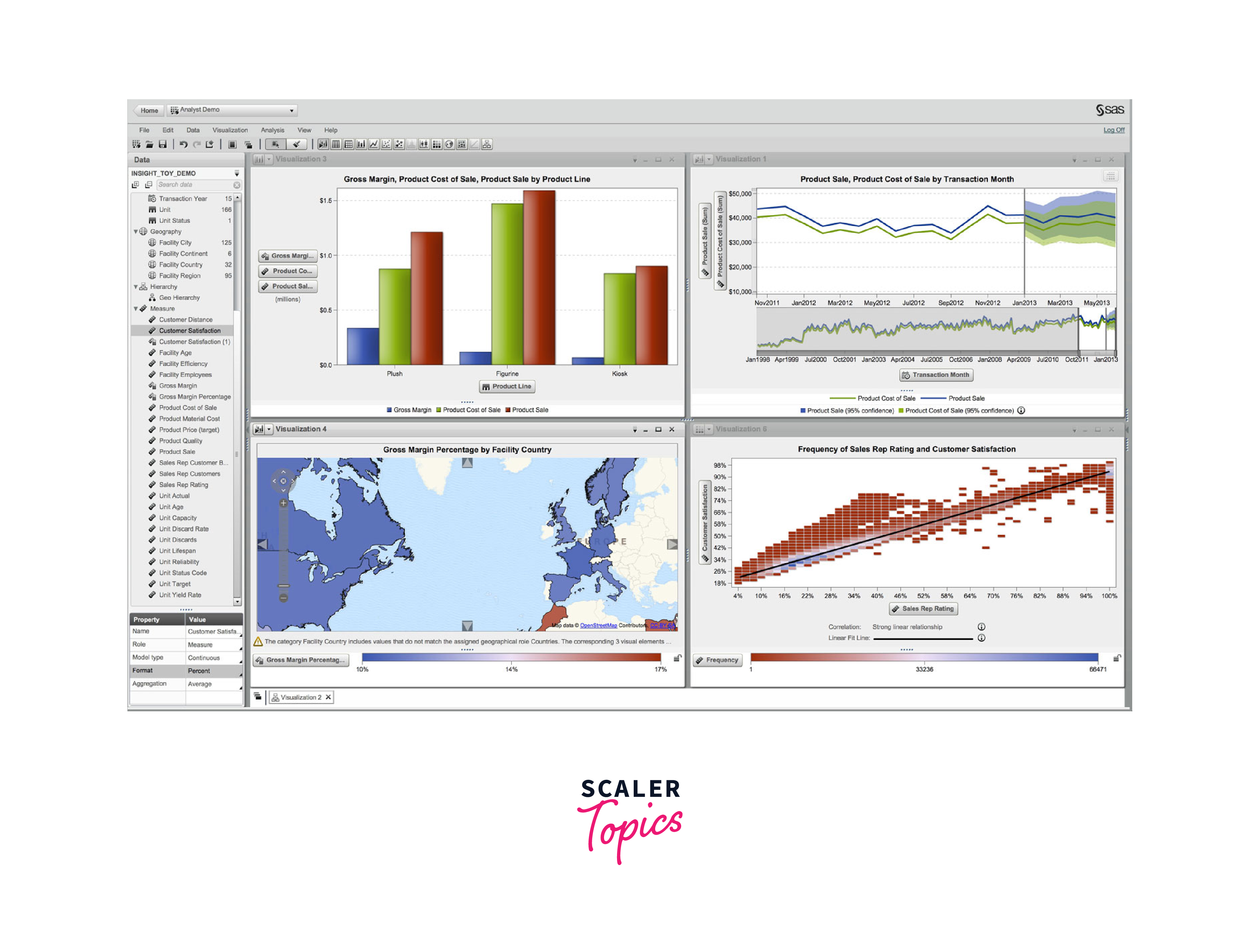
Microsoft Power BI
Microsoft Power BI is a data visualization and business analytics tool that enables users/professionals to visualize data, and derive, and share insights across an organization. Known for its user-friendly interface, Power BI connects to a variety of data sources, allowing users to import, manipulate, and analyze data with ease. It offers a range of interactive visualization options, including charts, graphs, and dashboards, making complex data accessible and understandable. Power BI also integrates seamlessly with other Microsoft tools and services, enhancing collaboration and productivity.
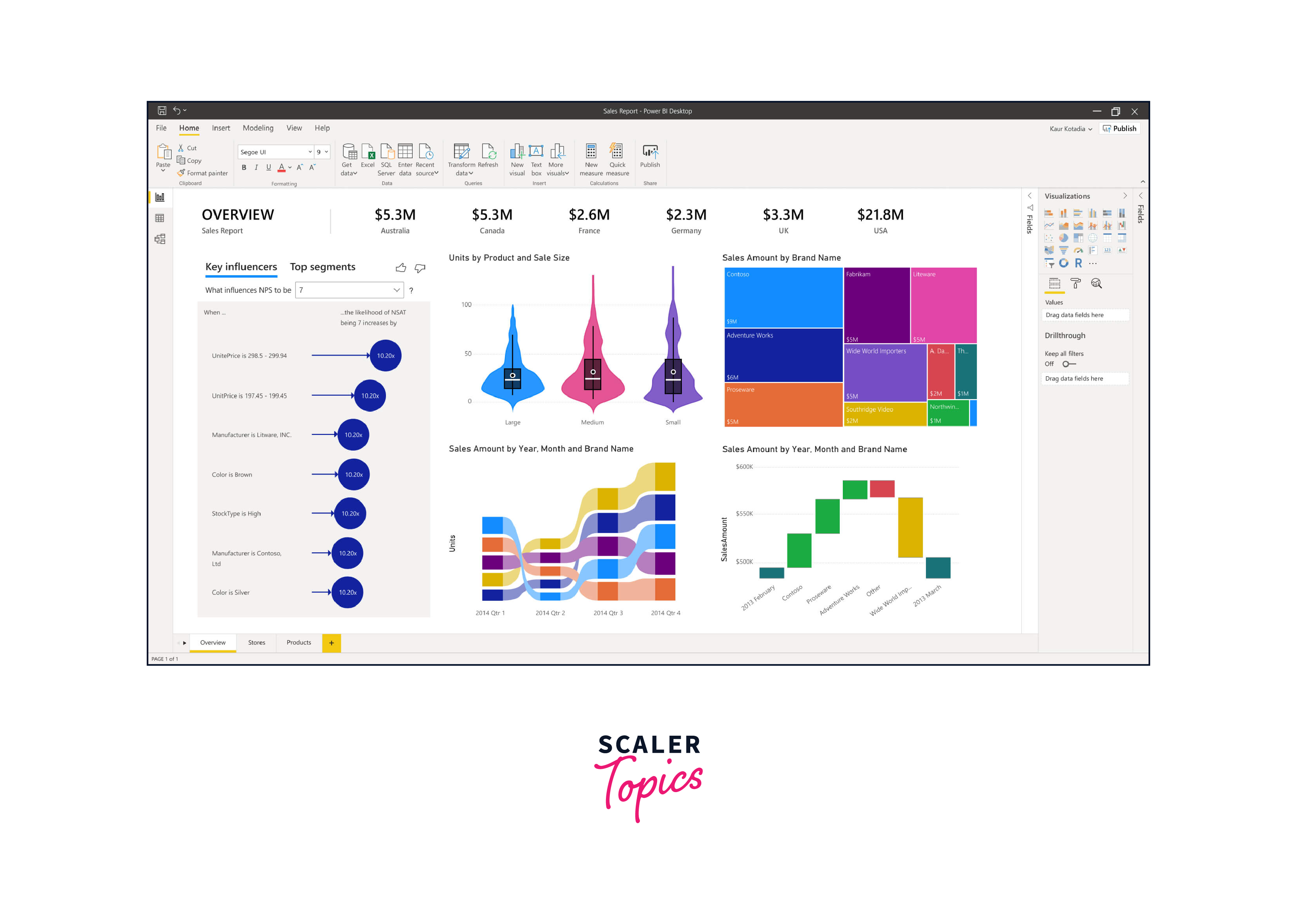
Tableau
Tableau is a leading business intelligence and data visualization tool designed to transform raw data into understandable and actionable insights. Known for its intuitive drag-and-drop interface, Tableau enables users to design and develop dynamic, interactive, and aesthetic visualizations, reports, and dashboards. With robust connectivity to various data sources, including databases, spreadsheets, and cloud-based platforms, Tableau facilitates quick and effective data analysis. Its real-time collaboration features enable teams to work collaboratively on projects, fostering a data-driven culture within organizations. Tableau is widely used across industries for its powerful analytics capabilities, making data exploration and presentation accessible to both technical and non-technical users.
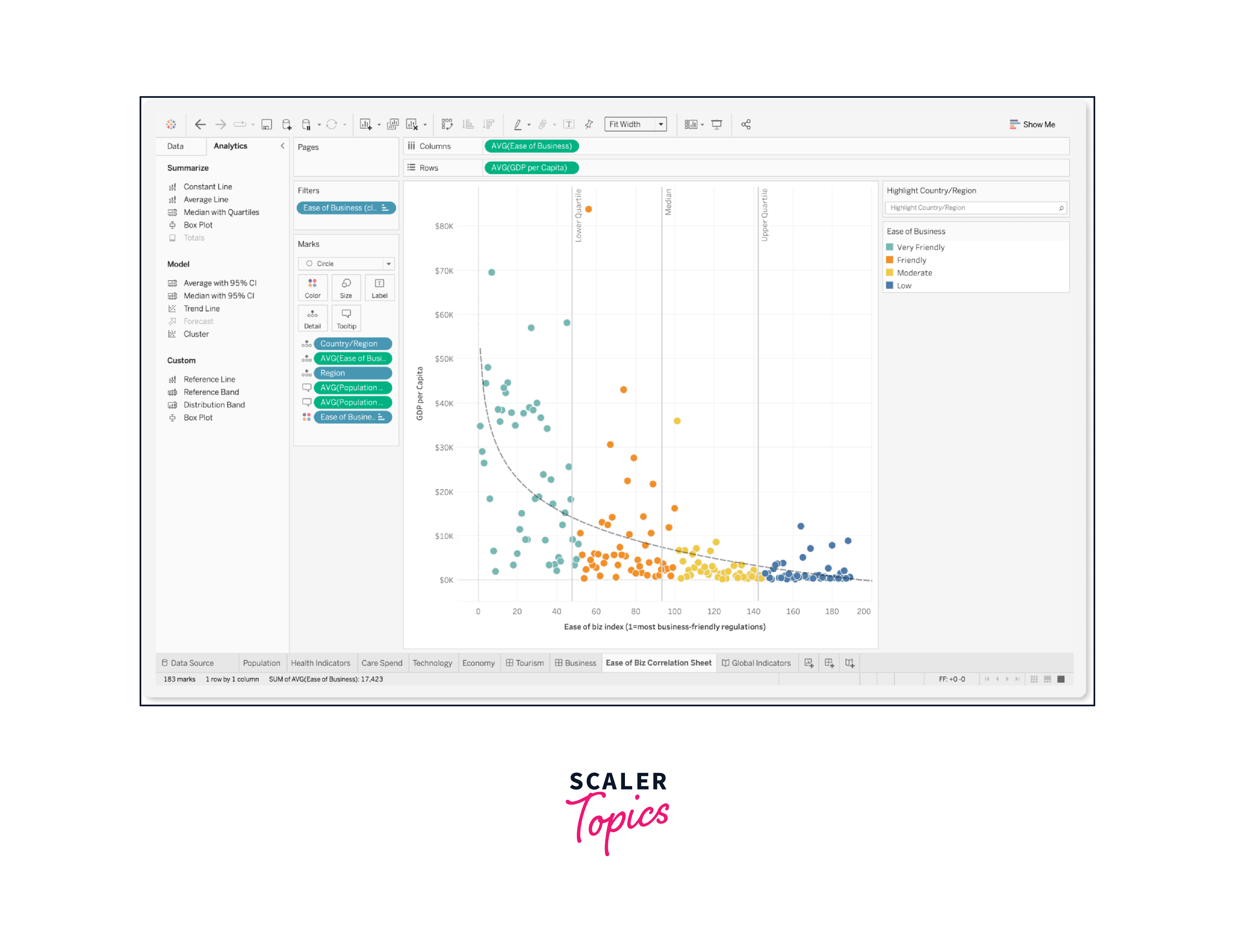
Qlik Sense
Qlik Sense is a modern, self-service data visualization and business intelligence platform that enables users to analyze, explore, and visualize data effectively and intuitively. Using associative data modelling, Qlik Sense enables users to make discoveries and uncover hidden insights within their data. The platform allows for the creation of interactive dashboards and reports, facilitating data-driven decision-making. Qlik Sense supports a collaborative analytics approach, where users can easily share and explore data together. With robust data integration capabilities, including real-time data connections, Qlik Sense is suitable for organizations looking to implement dynamic and interactive analytics solutions across various business functions.
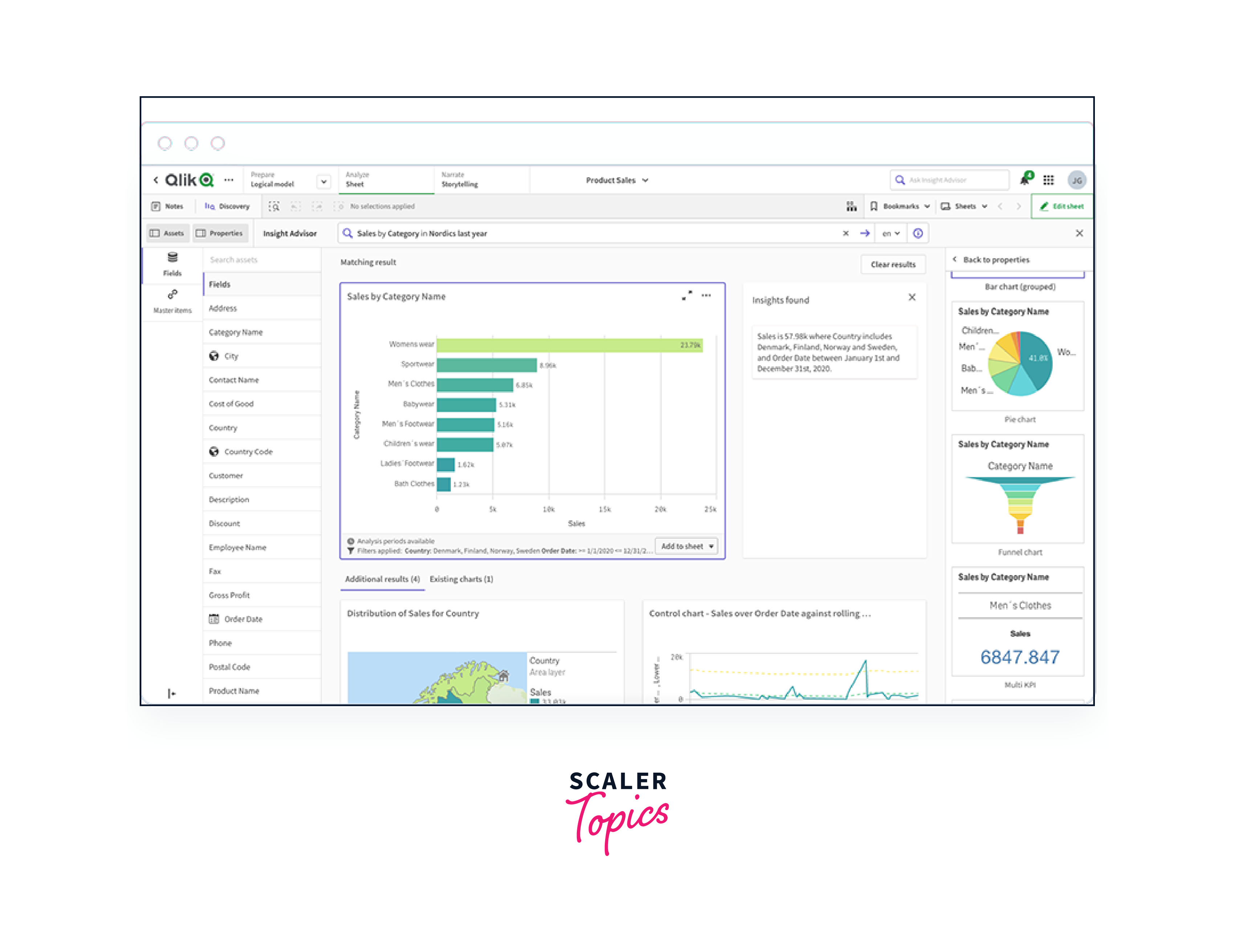
Splunk
Splunk, developed by Splunk Technology based in San Francisco, is a popular business analytics tool. It is employed to process data from machine log files, capturing, indexing, and identifying correlations in real-time data. This information is then utilized to create graphs, reports, dashboards, and more. Splunk is typically favoured in the context of small and medium-sized industries.
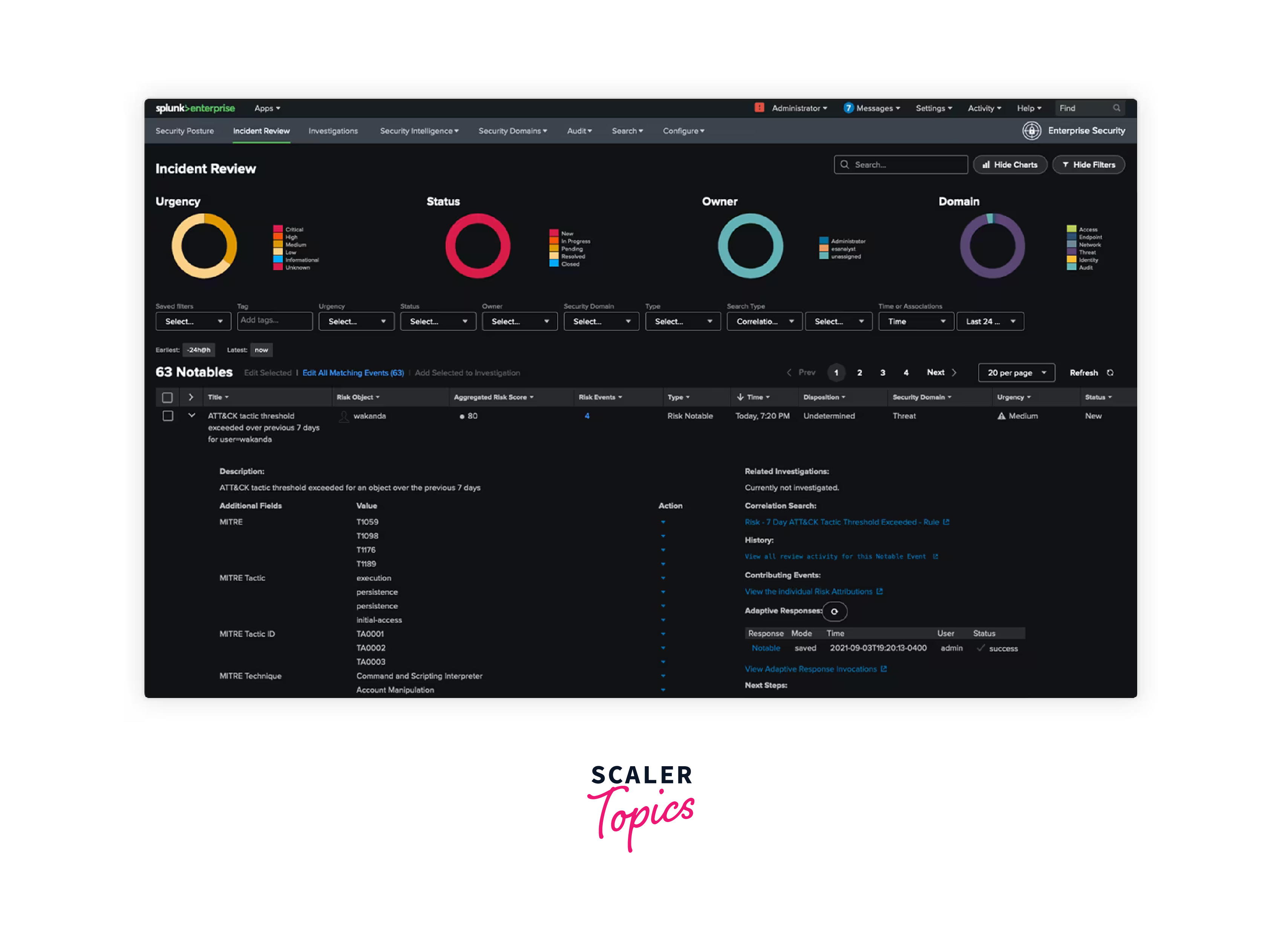
MicroStrategy
MicroStrategy stands out as a premier business analytics tool, providing features like data discovery, data visualizations, and web services. It integrates various business analysis techniques, accessing external sources for data analysis and enabling users to generate and distribute reports from any device or location. Noteworthy is its ability to seamlessly handle unstructured text data. Operating MicroStrategy demands only a fundamental grasp of programming, data analysis, and SQL, making it accessible to users with diverse skill sets.
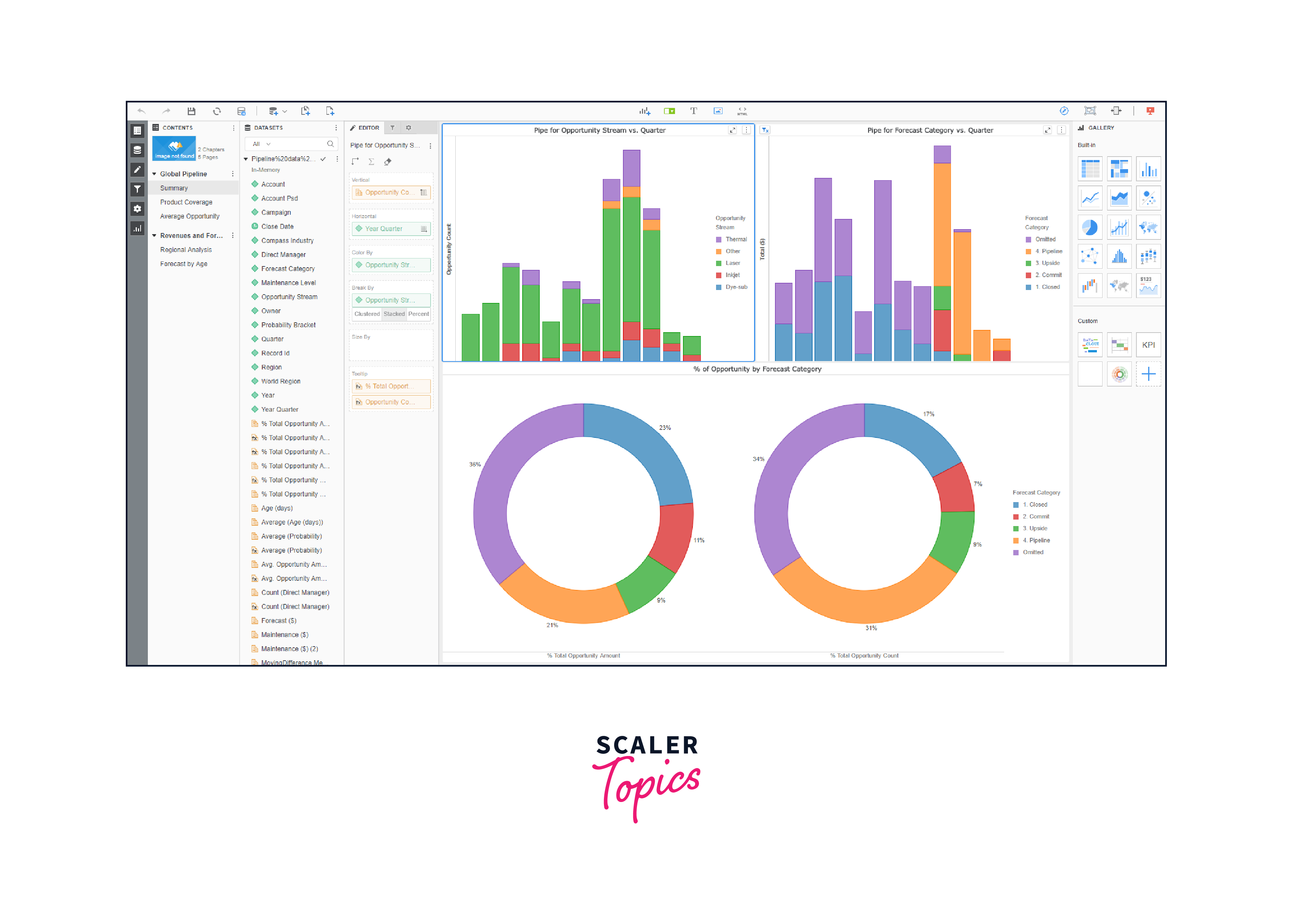
Sisense
Sisense is a robust business analytics software enabling users to conduct in-depth analysis and visualization of vast and intricate datasets. It caters to both small-scale enterprises and large corporations, facilitating the integration of diverse data sources and the amalgamation of multiple datasets. Sisense empowers users to make informed, data-driven decisions and predict future trends. Widely acknowledged as a top-tier cloud analytics platform, it has received acclaim from industry authorities such as Gartner and Dresner for its excellence in providing advanced analytics solutions.
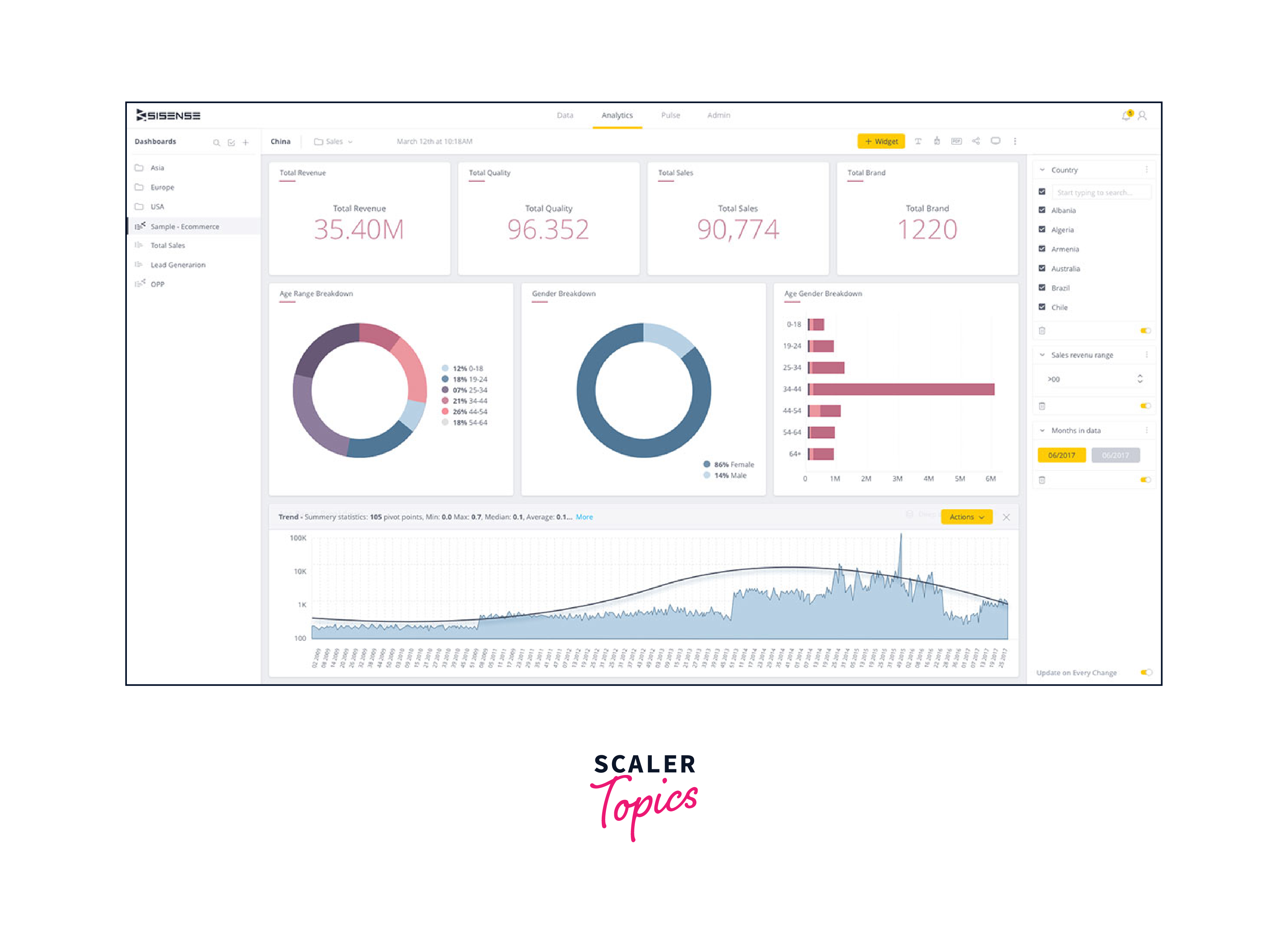
Board
Board, another highly regarded business analytics tool, stands out for its advanced analytics model, enabling users to craft personalized, user-friendly reports and dashboards. Renowned for its ability to handle extensive datasets, the Board facilitates precise analysis and forecasting through features like data visualization, drill-down, and drill-through functionality. This tool empowers users to manage large volumes of data effectively while ensuring interactive and intuitive exploration for enhanced decision-making.
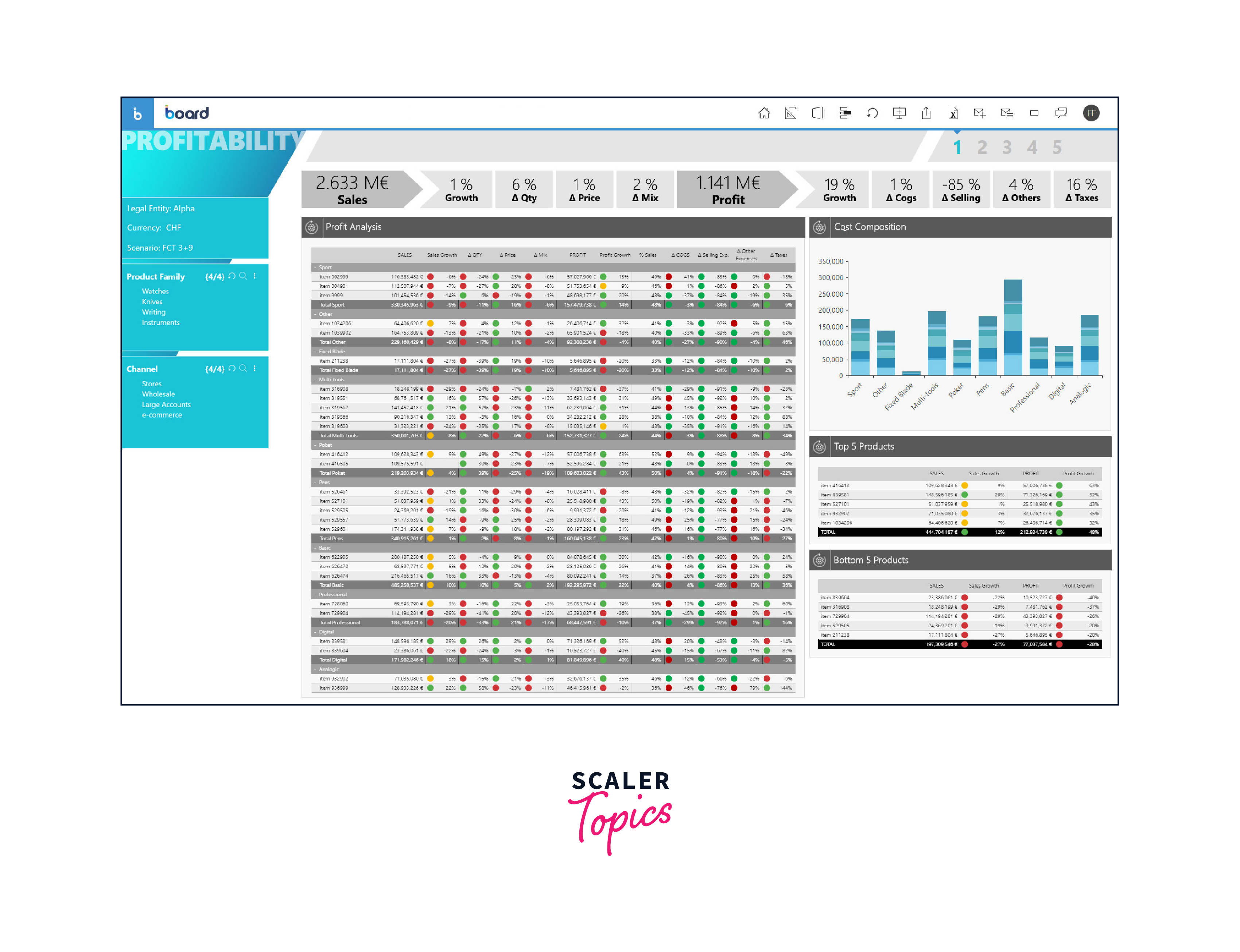
Domo
Domo stands out as a comprehensive cloud-based business analytics platform, seamlessly merging diverse data sources with extensive connector support. Renowned for its user-friendly interface, Domo grants users effortless access to both micro and macro-level insights, presenting real-time data visualization. Its versatility caters to businesses of all sizes, making it a preferred choice for both small enterprises and large corporations. Domo is purposefully crafted to aid businesses in uncovering effective solutions and making informed decisions based on the valuable insights it provides.

Difference between Business Analytics and Business Intelligence Solutions
Business analytics and business intelligence (BI) solutions are closely related concepts, yet they serve distinct purposes within the realm of data-driven decision-making. Business intelligence focuses on collecting, processing, and presenting historical data to help businesses understand past performance. It primarily deals with descriptive analytics, answering the question of "what happened?"
On the other hand, business analytics is forward-looking, leveraging statistical analysis and predictive modelling to extract insights and guide future strategies. It involves a deeper exploration of data to identify trends, patterns, and correlations. Business analytics encompasses diagnostic, predictive, and prescriptive analytics, addressing questions like "Why did it happen?" and "What might happen in the future?" This proactive approach allows organizations to make informed decisions and gain a competitive edge.
In summary, while business intelligence provides a retrospective view of data, business analytics goes a step further, offering a forward-looking perspective to support strategic decision-making and business optimization.
Career Options in Business Analytics
In the century, the landscape of career options has undergone a significant transformation, presenting professionals with new and exciting paths. Among these, none is comparable with Business Analytics in terms of lucrative salaries, continuous learning opportunities, and training experiences integrated into daily work routines.
The pervasive use of business analytics tools across various industries, including automotive, healthcare, retail, banking, hospitality, and aviation, has paved the way for an array of career opportunities for qualified business analysts. Individuals can tailor their career paths based on skills and interests, delving into specialized roles such as Big Data Engineer, Data Scientist, Database Administrator, Marketing Analytics Manager, or Data Visualization Specialist. This diversity allows professionals to align their expertise with specific domains, contributing to the ever-expanding field of business analytics.
Conclusion
- The realm of business analytics is evolving rapidly, with tools like Microsoft Power BI, Tableau, SAS, and others leading the charge, offering advanced capabilities for data analysis and visualization.
- The importance of business analytics in fostering informed decision-making, optimizing operations, and gaining a competitive edge is underscored by its role in driving efficiency, enhancing customer experiences, and ensuring compliance.
- From versatile options like Excel to sophisticated platforms such as Splunk, the top business analytics tools cater to diverse needs, reflecting the industry's commitment to empowering businesses with robust analytics solutions.
- With the increasing demand for business analysts across sectors, individuals can carve diverse career paths, specializing in roles like Data Scientist, Database Administrator, or Marketing Analytics Manager, offering a wealth of opportunities for growth and advancement.
